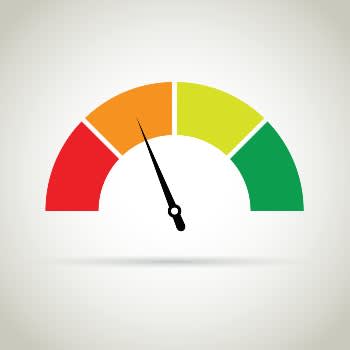How Does a Bankruptcy Affect Your Credit Score
Dec. 29, 2020
 Most clients are concerned about the effect a bankruptcy will have on their credit score. A bankruptcy can stay on your credit report for up to 10 years, but most of my clients have a better credit score about 1-2 years after their bankruptcy than before. Why? Bankruptcy removes the conditions that drag down your credit score in the first place.
Most clients are concerned about the effect a bankruptcy will have on their credit score. A bankruptcy can stay on your credit report for up to 10 years, but most of my clients have a better credit score about 1-2 years after their bankruptcy than before. Why? Bankruptcy removes the conditions that drag down your credit score in the first place.
Missed payments, late payments, repossessions, collections, charge-offs, a high ratio of debt to income, and a high utilization rate of available credit are all factors that drag down your credit score. Once you file a bankruptcy, the negative credit reporting for missed payments or collections stop. Existing debts are marked as having $0 balance, and your debt-to-income ratio also improves along with the utilization rate of available credit.
HOW BANKRUPTCY AFFECTS YOUR CREDIT SCORE
Obviously, if you have a high credit score, then a bankruptcy filing will affect your score more than someone with a lower credit score. However, most individuals are already dealing with a low or distressed credit score by the time they consider a bankruptcy due to the reporting of the late/missed payments and other negative information.
Bankruptcy does not negatively affect your credit score forever as it will eventually fall or your credit report. A bankruptcy filing can improve your credit score over the long term because it essentially wipes out the negative reporting information that drags your credit score down. If you take the appropriate steps to improve your credit score after bankruptcy, you will end up with a greatly improved credit score by the time bankruptcy disappears from it.
COMMON TIPS TO IMPROVE YOUR CREDIT SCORE AFTER BANKRUPTCY
Keep these tips in mind when working to improve your credit score after a bankruptcy filing.
Pay Future Debt on Time — All debt payments should be made early or on time. Late and missed payments have a large negative impact on your credit score.
Obtain a Secured Credit Card — Building good credit requires credit. Apply for a secured credit card. With a secured card, you put down a deposit with the credit company, but you will make payments to the creditor which will improve your credit rating.
Limit Your Credit Cards — Avoid having too many open lines of credit after bankruptcy. This will help you from falling into the same debt trap as before.
Keep Old Credit Accounts — If you have older credit accounts that are not closed after your bankruptcy, use them when you can pay off the balance quickly. Just be sure to avoid running up your available lines of credit so you don’t get overwhelmed with debt.
Review Your Credit Reports —You should regularly review your credit report and report any errors to prevent unnecessary negative marks on your report. Checking your credit report does not hurt it. Only hard inquiries, like those done for loans, will lower your score a small amount.
CONTACT TREGUBOFF LAW, PLC TODAY FOR A FREE BANKRUPTY CONSULT
Do not put off a bankruptcy because you are worried about your credit score. Bankruptcy can give you fresh start and release you from the overwhelming burden of debt and the stress that comes with it. Contact me today for a free consultation to see how a bankruptcy can alleviate your stress and give your and your family a fresh start.
